Can you imagine living without a fridge?! Could you even survive? I bet you could!
Humans have lived like that for hundreds of years. The difference is that they had a few tricks up their sleeves that helped them survive.
Even today, people still live without refrigeration – some because of unfortunate circumstances, and others want to lower energy costs or cut dependence on the grid.
Whatever the reason, here’s how you can live without refrigeration.
Seasonal Eating
A first step on the journey to living without refrigeration is eating local, seasonal food.
It doesn’t matter whether you’re buying it from the market or growing it yourself. The more local and seasonal, the better.
- During spring, there’s usually a surplus of eggs, which is great because many foods will be gone or petering out. This also a great time to enjoy maize, barley, rice, and other spring crops.
- During summer, vegetables and fresh greens abound, allowing you to eat a meat-free diet. When living without a fridge, you’ll quickly realize that storing meat is difficult during the warmer months, so turning vegan for a while would be wise.
- During fall, excess animals are slaughtered, which provides the protein you and your family need to get through the cold winter months.
- Winter is the best season for storing any food as you can harness the cold temperatures to keep your food stuffs fresh.
Of course, this varies from location to location, but each area has a different natural rhythm of seasonal foods.

Food Preservation
After adopting a seasonal diet, you need to learn the traditional tricks your forefathers used to preserve their bounty.
- Drying is a preservation method that uses the wind and sun to reduce water activity in your food.
- Freezing without a fridge involves freezing water in the cold snow and placing it in a cooler along with your foodstuffs.
- Smoking flavors, cooks, and preserves food by exposing it to smoke from burning wood.
- Salting/Curing removes moisture from foods like meat.
- Pickling involves preserving food in brine or marinating it in vinegar.
- Sugar in syrup or crystallized form can preserve fruits.

- Lye prevents bacterial growth by turning food alkaline.
- Bottling and canning involve sealing cooked food in sterilized cans and bottles.
- Jellying is a preservation method whereby you cook food in a substance that solidifies to form a gel.
- Potting involves placing meat in a pot and sealing it with fat.
- Jugging involves preserving meat by stewing it in wine, brine, or animal blood.
- Burial in the ground involves burying your food underground where there is no oxygen or light.

Build a Root Cellar
A root cellar is any storage that uses humidifying, insulating, and natural cooling properties of the earth.
It is your best option for storing root vegetables like potatoes, carrots, beets, turnips, rutabagas, and parsnips. You can also use it to store rhizomes or bulbs of perennial flowers and pickled or canned vegetables.
A secondary use for a root cellar is storing beer, wine, and other alcoholic beverages.
There are three main types of root cellars you can build:
- Basement Root Cellar: This type of root cellar is attached to the house for easy access.
- Hole-in-the-Ground Cellar: This option requires you to dig horizontally into a hillside or down in the ground.
- Garbage Can: This root cellar is probably the easiest to make as all you need to construct it is to dig a hole and place a metal barrel or garbage can inside. You then add some straw at the bottom of the can, then your food stuffs.
Related: Homestead Pantry Tour
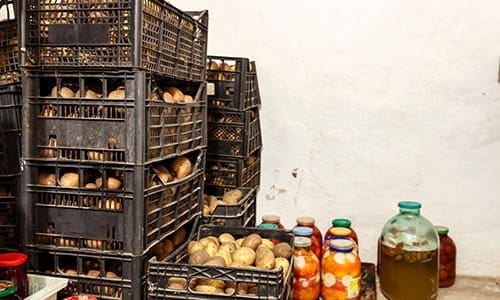
Don’t Over Cook
Another great solution to living without a fridge is not having leftovers.
If you can start scaling back on your food portions, then you won’t have to worry about leftovers and the need to refrigerate anything.
Use Food That Doesn’t Spoil Quickly
Not every food goes bad quickly. In fact, most of the healthiest foods will keep surprisingly well without special storage.
- Homemade bread doesn’t go moldy like store-bought bread. Instead, it dries out, and you can use it for making all sorts of tasty foods like French toast.
- Raw milk sours but doesn’t spoil, which is terrific for making pancakes, biscuits, and more.
- Unwashed farm fresh eggs last surprisingly long in a cool, dry pantry. (To be frank, I have been able to store commercial eggs for a relatively long time in the pantry too)
- Butter can last for a long time on the counter. But during summer, we rarely buy it, as it can’t cope with high temperatures.
- Raw honey can last for decades, if not longer! Did you know that it’s also great for dressing wounds?
- Mustard lasts longer than mayonnaise.
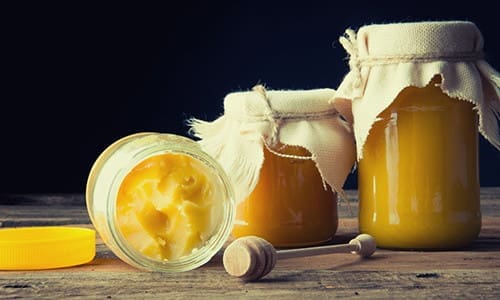
Food Types and Their Refrigeration Needs
Vegetables
Vegetables can last up to 3 months without refrigeration, but make sure you buy ones that have never been refrigerated.
Additionally, ensure you choose produce that’s not overripe, bruised, rotten, or looks old, and don’t wash the produce before storing it.
Here’s the length of time to store your vegetables:
- Onions, Potatoes, and Sweet Potatoes: 1-2 months
- Pumpkins and Butternuts: 2-3 months
- Winter Squash, Garlic, and Cabbage: 1 month
- Tomatoes, Beets, Turnips, Kale, and Radishes: 3-4 weeks
- Green Peppers, Zucchini, and Carrots: 2 weeks
- Broccoli, Asparagus, Cauliflower, and Eggplant: 1 week
- Canned Vegetables: Almost forever
- Other Vegetables: Less than 1 week
Bear in mind that herbs, broccoli, lettuce, cauliflower, or any vegetable with a stem will store superbly well if you submerge its ends in water.
Related: 100+ Long Lasting Foods that Can be Stored Without Refrigeration (Video)

Fruits
Refrigeration cuts the shelf-life of fruits by 50%. However, getting unrefrigerated fruits from the local store is difficult. You’ll have to buy it directly from farmers or farmers’ markets.
Most fruits don’t need refrigeration, but some have a shorter shelf-life than others.
Here’s the average shelf-life of fruits without refrigeration:
- Melons and Papaya: 7 days
- Bananas: 7 to 10 days
- Pears, Avocado, and Mango: 10 days to 2 weeks
- Pineapples: 2 weeks
- Citrus Fruit , Oranges, Apples, and Peaches: 4-5 weeks
- Dried Fruit: Years
- Blueberries, Grapes, and Other Fruits: 2-3 days
Dairy
Dairy products have different shelf lives:
- Butter: Has a shelf-life of at least 2 weeks and as many as 4 weeks if it’s in a cool, dry place. You can opt to buy canned butter, which tastes like regular butter but lasts longer.
- Yogurt: Small-size yogurts can last for a few weeks, provided they’re unopened. If you bought the larger size, eat it within two days.
- Cheese: Hard cheese, vacuum-sealed or coated in wax can last for years without refrigeration.
- Milk: You cannot get milk to last more than 6 hours without refrigeration. The best solution is to get yourself a milking goat or cow, buy fresh milk daily, or use powdered milk.
Related: How To Dehydrate Milk For Long Term Storage
Meat
Fresh meat is difficult but not impossible to store without refrigeration, here are your best options:
- If you buy vacuum-sealed and frozen meat from the butcher, store it in a cooler or freezer bag for up to a week.
- You can also preserve the meat by curing and smoking it.

Eggs
Farm-fresh eggs can last for a month or so on the counter. If you want your eggs to last longer or have bought ones that have been refrigerated, then turn them daily.
If you can keep egg-laying chickens – the better!
Grains & Starches
Uncooked grains and starches don’t require refrigeration.
Condiments
Most condiments will keep just fine for months without refrigeration. That includes ketchup, mayonnaise, peanut butter, mustard, and relish. Other spreads like maple syrup, jams, molasses, and jellies will keep for 1-3 months.
Honey can last for decades without going bad. If it crystallizes, gently reheat it.
Living without refrigeration can be frustrating at times, but it sure is a worthwhile undertaking you should try.
You may also like:
 20 Foods That Can Last 20 Years
20 Foods That Can Last 20 Years
The Cheese Preservation Secret That can Keep It Good at Room Temperature (Video)

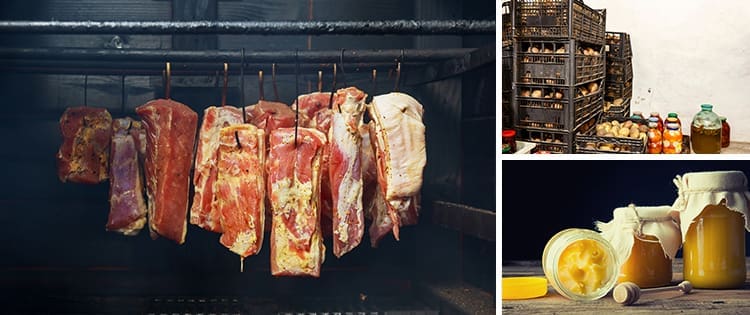

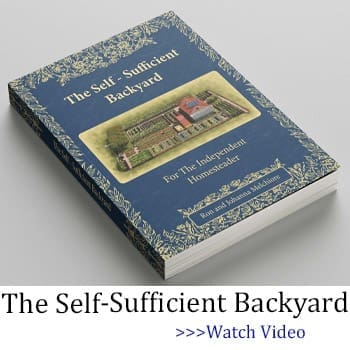
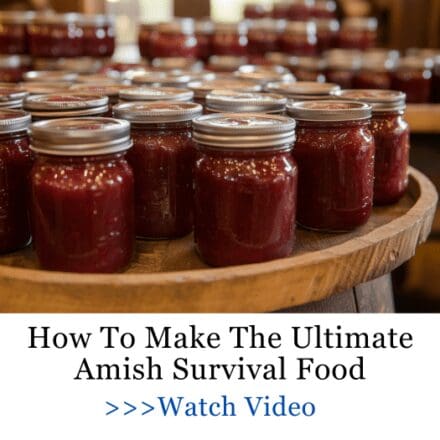





Trackbacks/Pingbacks